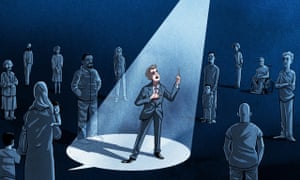Discuss the view that individual economic agents will always act as rational decision makers so as to maximise their utility.
To properly discuss the view that individual economic agents will always act as rational decision-makers to maximize their utility, it's important to define and explain the key terms involved.
Rational Decision-Making: Rational decision-making refers to the process of making choices that are consistent with one's preferences and objectives, based on a careful evaluation of available information and the expected outcomes of different options. Rational decision-makers aim to optimize their choices to maximize their expected utility.
Utility: In economics, utility represents the satisfaction or value that individuals derive from consuming goods or services. It is a subjective measure of individual preferences and can vary from person to person. Utility can be expressed in different ways, such as happiness, well-being, or satisfaction.
Now, let's discuss the view that individual economic agents will always act as rational decision-makers to maximize their utility.
Supporters of this view argue that individuals possess rationality and have a clear understanding of their own preferences. They believe that individuals carefully assess the available choices, evaluate the costs and benefits associated with each option, and select the one that maximizes their utility. The rational decision-making model assumes that individuals have perfect information, are able to process information accurately, and act in their self-interest.
However, critics of this view highlight several limitations and challenges to the assumption of universal rationality:
Bounded Rationality: Human beings have cognitive limitations, and their ability to process information and make decisions is bounded. Limited time, cognitive biases, and imperfect information can lead to decision-making that deviates from the rational model.
Emotion and Psychology: Emotional factors and psychological biases can influence decision-making. People may make choices based on non-economic factors, social norms, or irrational beliefs, even if they are not in their best economic interest.
External Influences: The decisions of individuals are influenced by external factors such as social pressure, cultural norms, and advertising. These influences may divert individuals from making strictly rational choices.
Risk and Uncertainty: Rational decision-making assumes that individuals can accurately assess the risks and uncertainties associated with different options. However, people often face situations of uncertainty where the outcomes and probabilities are unknown, leading to decision-making based on imperfect information.
In reality, individuals exhibit a combination of rational and non-rational behavior, and their decision-making is influenced by a range of factors. While economic theory often assumes rationality, behavioral economics has highlighted the importance of understanding human behavior in a more realistic and nuanced way.
In conclusion, while the view that individuals always act as rational decision-makers to maximize their utility provides a useful framework for analyzing economic behavior, it is important to recognize the limitations and deviations from rationality that exist in real-world decision-making. Understanding the complexities of human behavior can provide valuable insights into economic outcomes and policy interventions.
